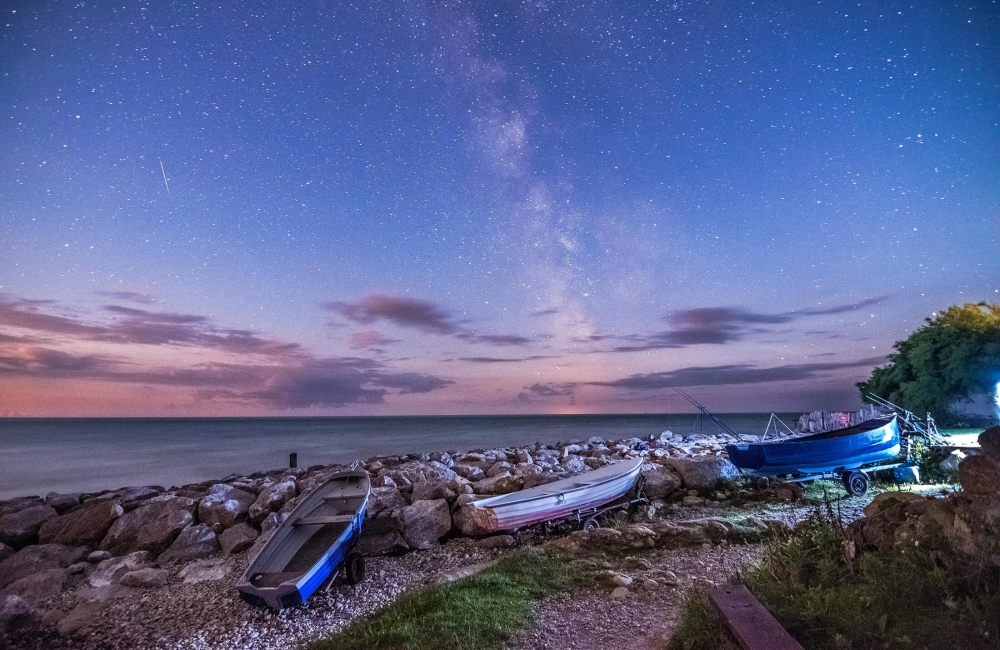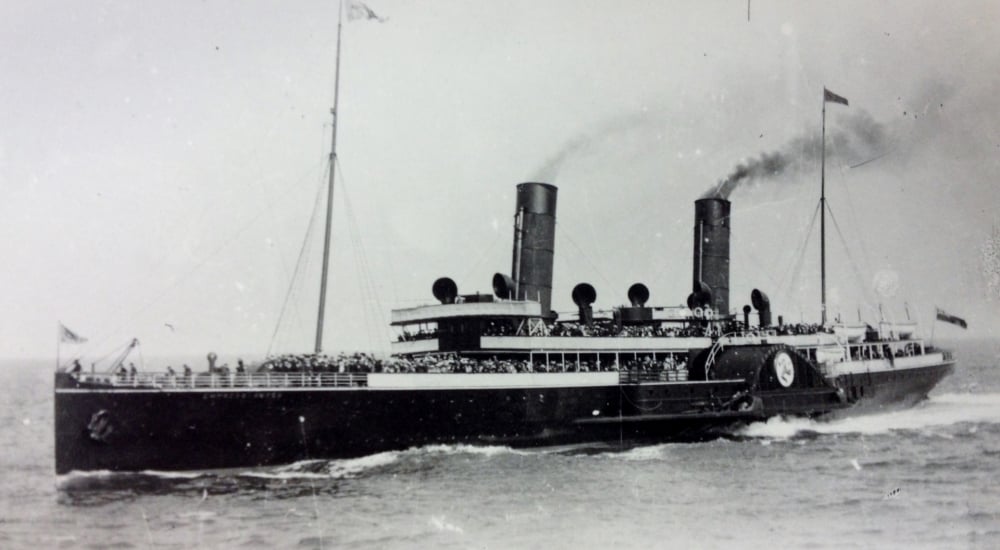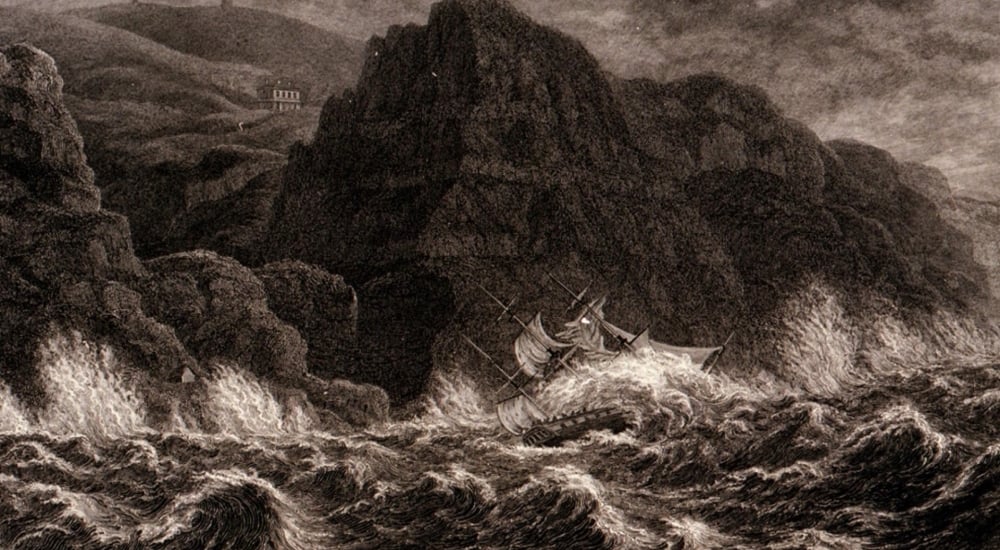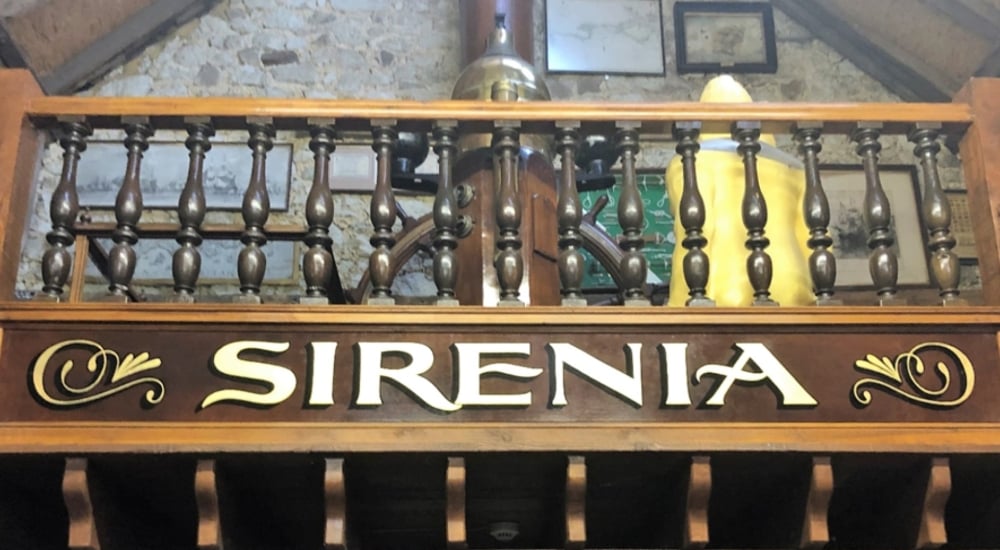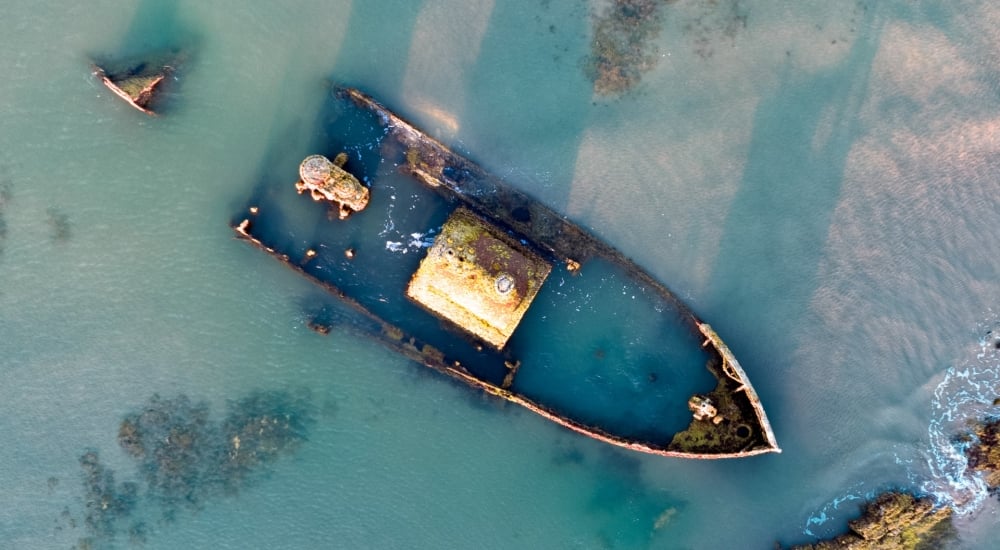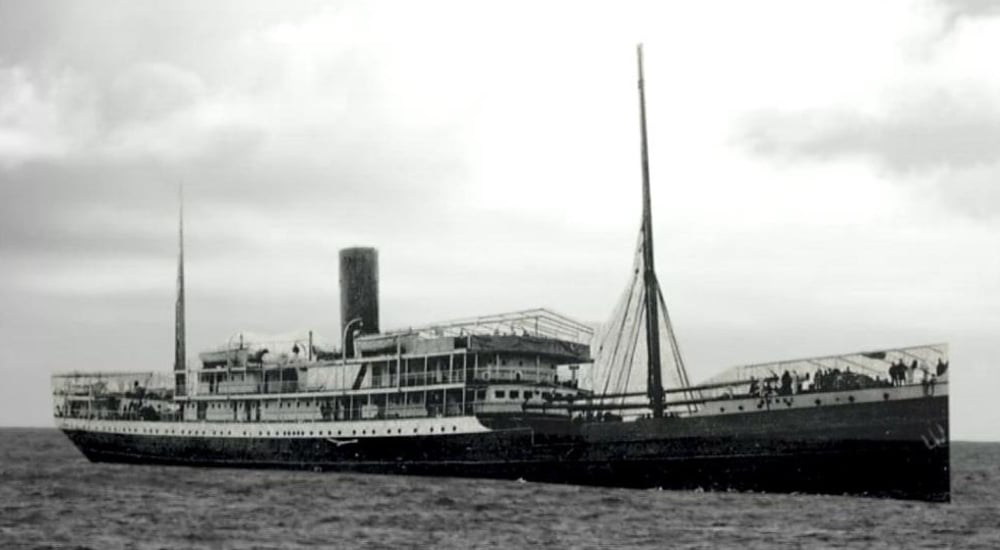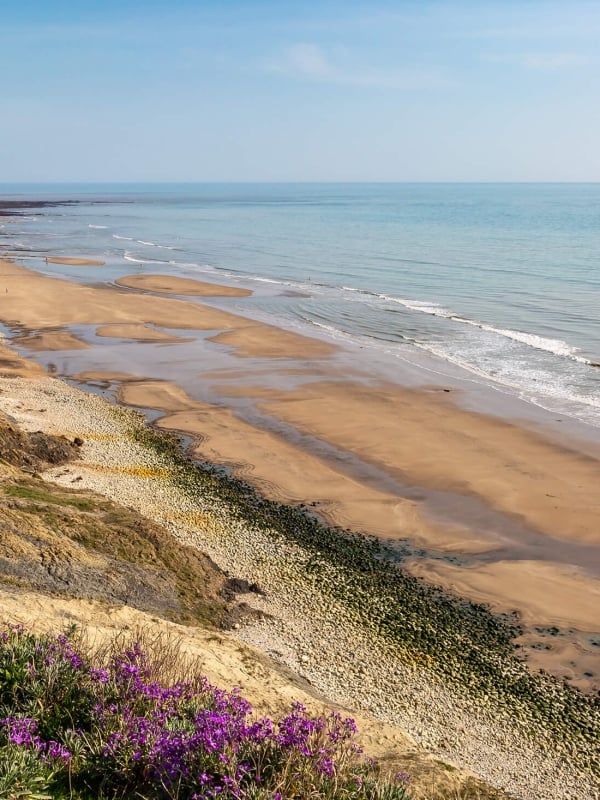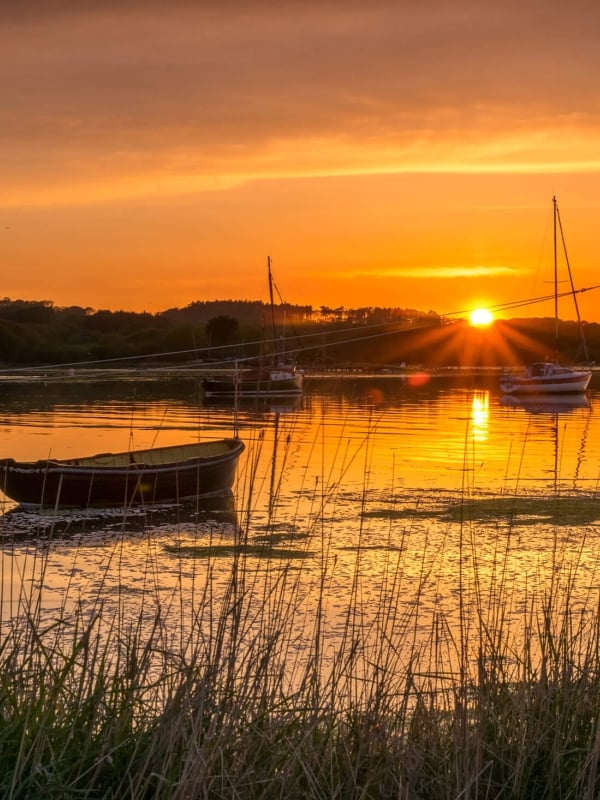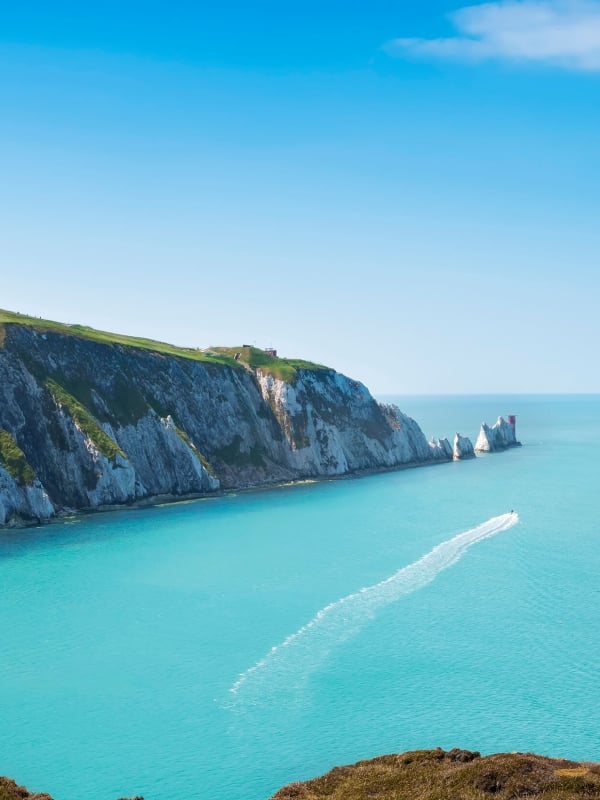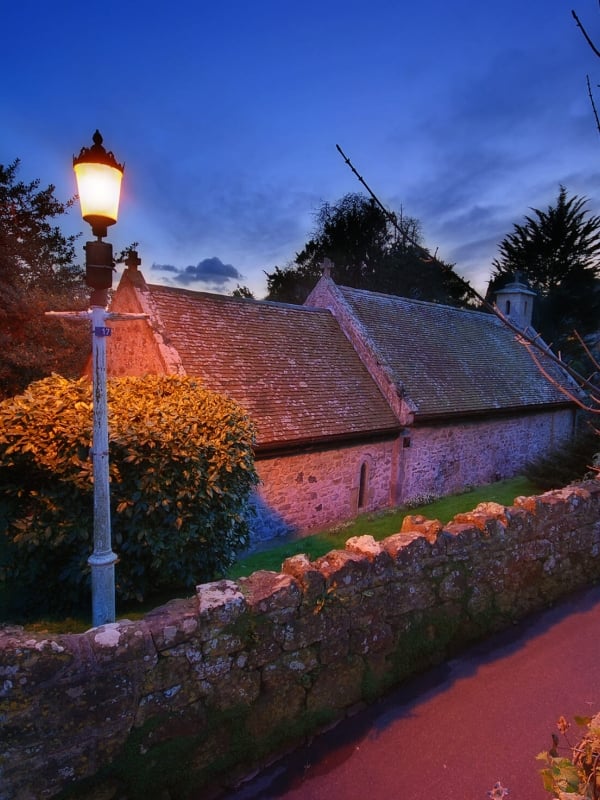Top Shipwrecks to Spot
around the Isle of Wight
Shipwrecks are abound around the Isle of Wight and some can still be seen in the shallows of the beaches, and at the foot of the cliffs.
Others are further out - but are good for diving on days when the water is clear enough to see what lies under the surface.
TUGS
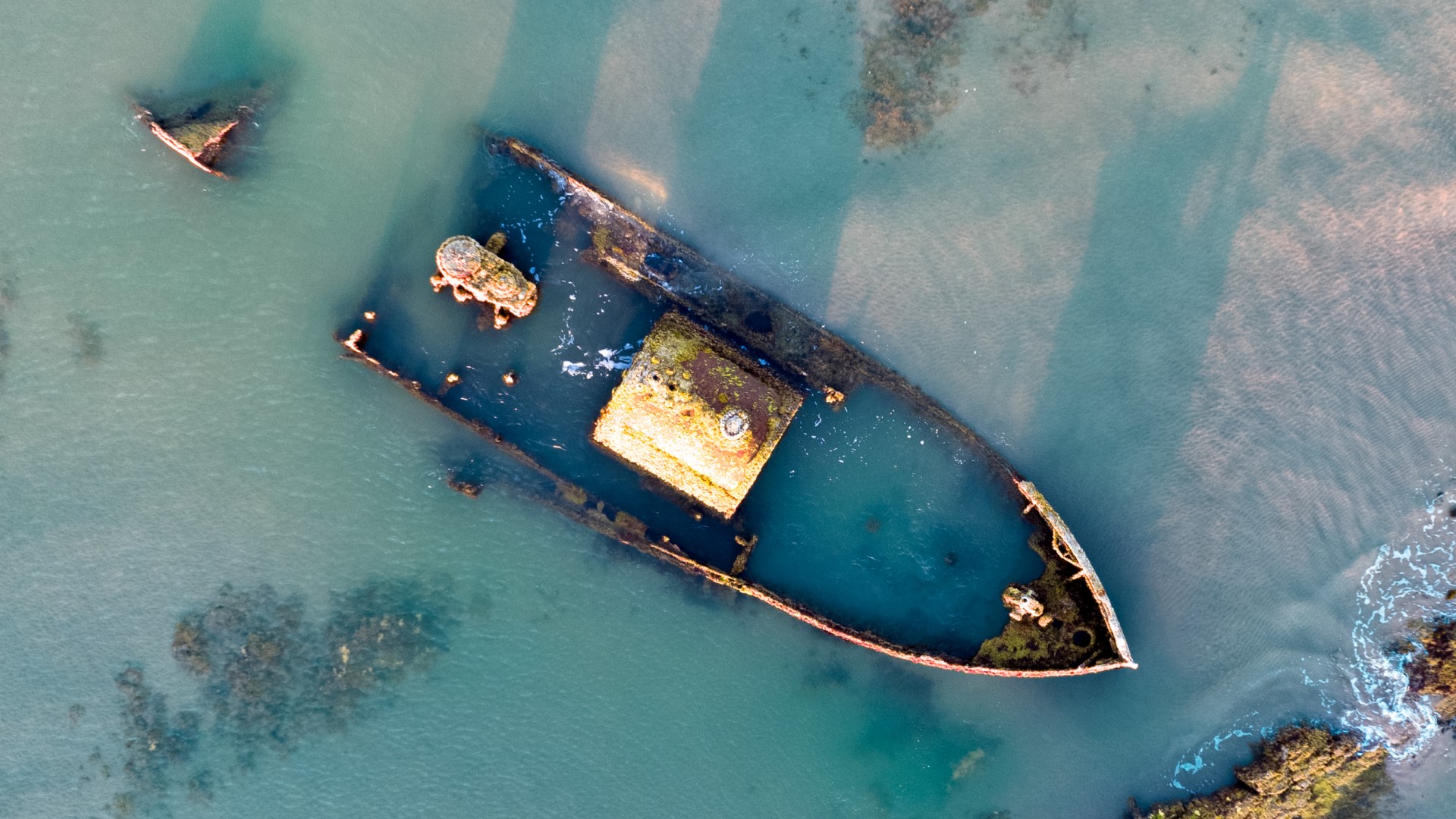
At spring tides at Compton Beach you can see the remains of the tug boat Carbon that hit the rocks in 1947 when the towing line snapped while she was being towed from Portland to Southampton for salvage. She was not worth anything in salvage so was left to rot and there is less of her to see every year.
Another tug, the Harry Sharman, foundered off Culver Cliff in 1970 during the Pacific Glory incident when attempts were being made to re-float the stricken oil tanker that burned off shore for many days. All on board the tug were saved but pieces of it still sit at the base of the chalk cliffs.
Paddle Steamer
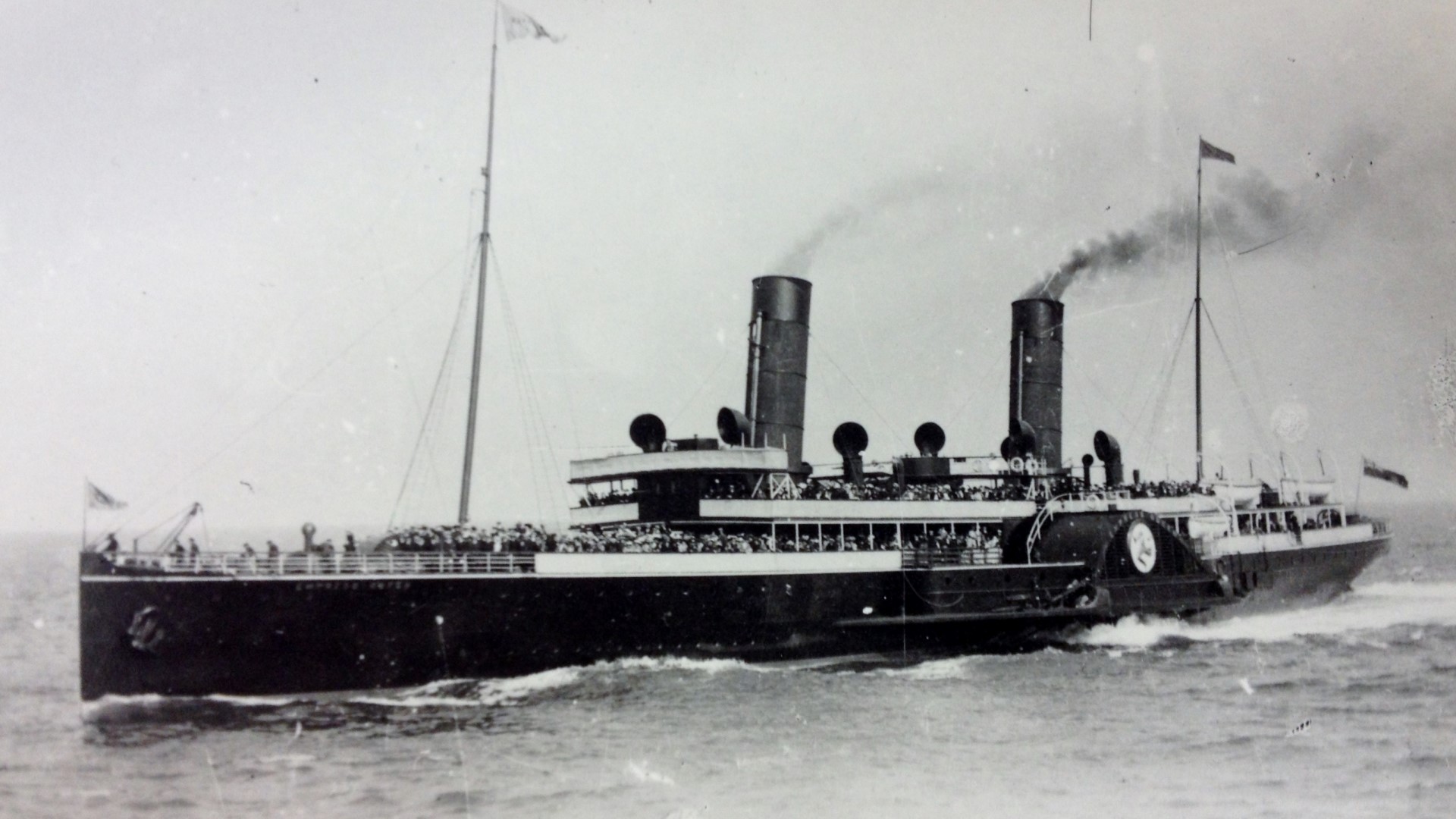
On Bembridge Ledge there is a very shallow channel called the Run, and where it exits the Ledge, off shore from the Crab and Lobster pub, you will find the wreck of the Empress Queen. In February 1916 this 370ft paddle steamer was off to collect troops from France when she hit the Ledge. The old Bembridge lifeboat was rowed out to her and saved all 110 people on board along with a dog and a cat. Before her demise she used to carry 2,000 passengers across the Channel at 21 knots but now she, like the Ledge, snares unwary sailors who are unfamiliar with these waters and she can be spied at low spring tides.
Caribbean Cargo
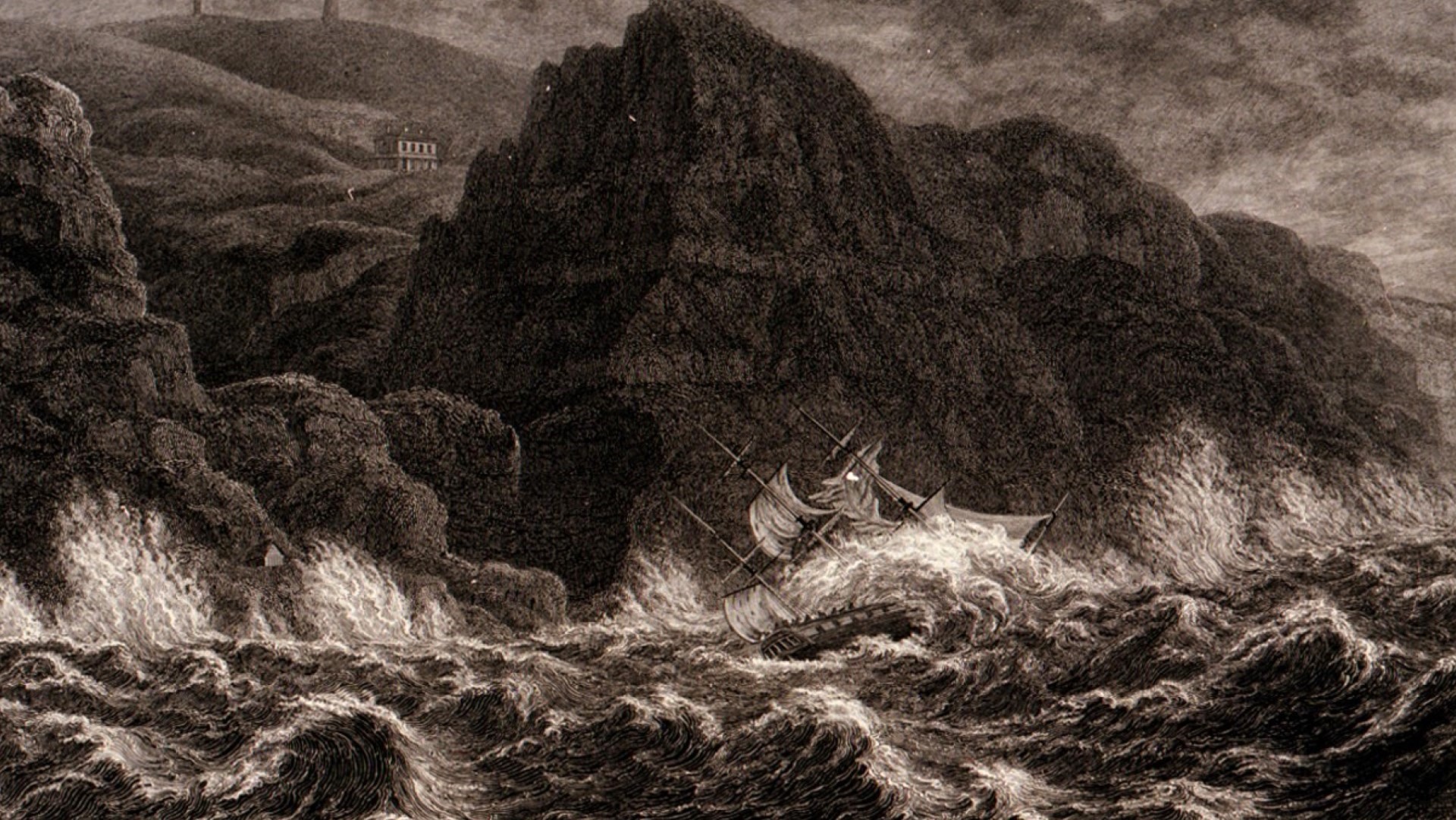
If you want to see the wreck of the Clarendon you only need go to the Wight Mouse Inn for a drink or meal as the pub was partially built from the timbers of the infamous ship that foundered in Chale Bay in 1836. Traveling back from St Kitts with a cargo of sugar, molasses and rum, the ship had 11 passengers and 17 crew but on the morning of 11th October 1836 she hit the beach at Blackgang in a gale, rolled onto her side and broke up in less than 10 minutes. Local fisherman, John Wheeler, tied a rope round his waist, gave the end to a mate, and plunged into the surf, saving three crewmen. But everyone else, including a family with four daughters aged between nine months and eighteen, were drowned or killed by timbers in the pounding surf. Eighteen of the dead are buried in Chale churchyard.
Lifeboat Losses
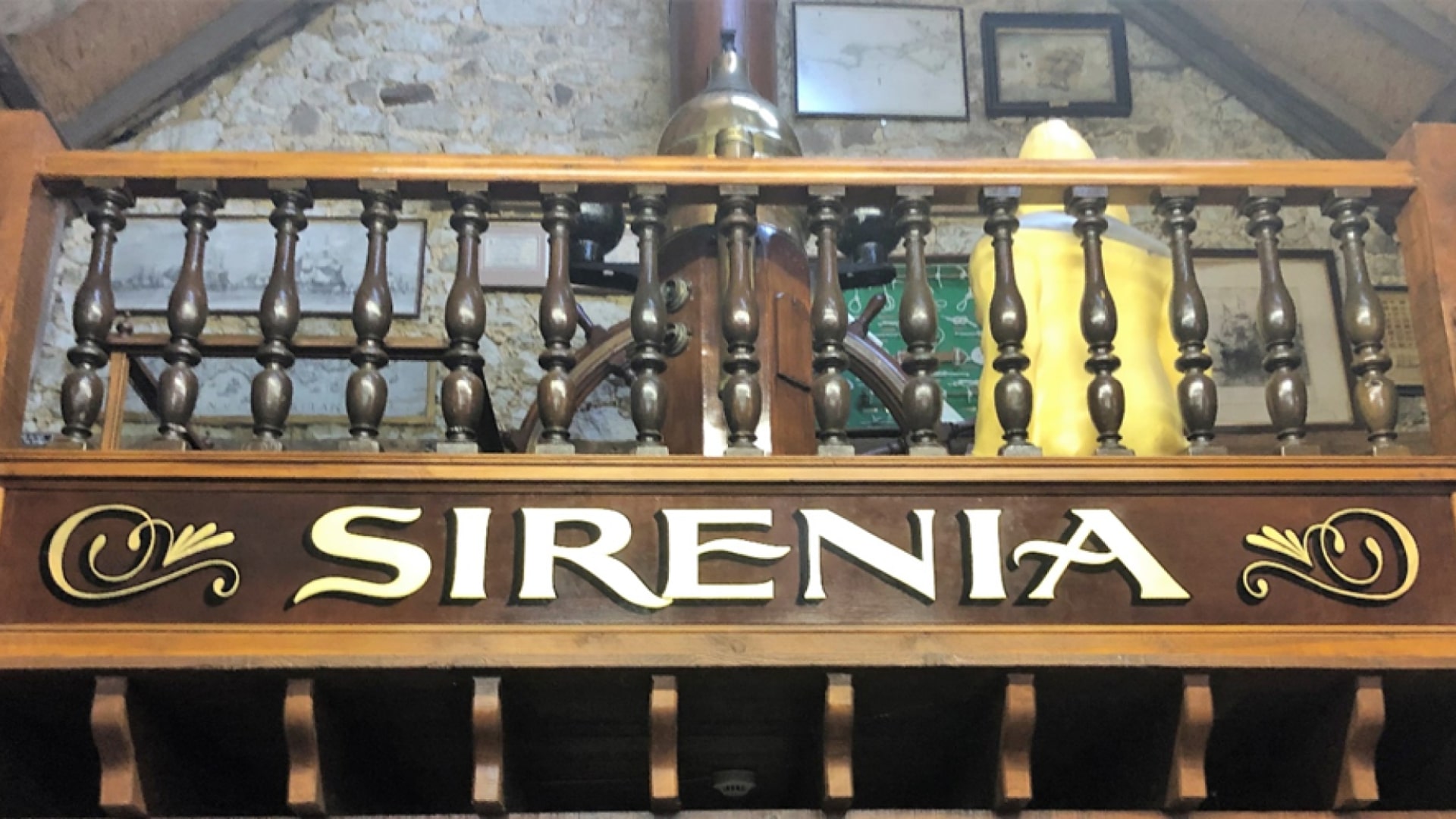
The Sirenia was another terrible wreck as three lifeboat men were lost as well as two crew/passengers on the ship. On the morning of March 9, 1888 in dense fog, it sailed on to the rocks at Atherfield Edge. By the afternoon the Brighstone Lifeboat had managed to save two women and two children, however Coxswain Moses Munt was sadly washed out to sea, along with the second coxswain Tom Cotton later that day. The Brook Lifeboat was beaten back by the waves and her second coxswain Reuben Cooper was lost overboard as well. This terrible tragedy saw the Atherfield lifeboat being brought into service, and divers still find relics on her bones beneath the waves.
War Grave
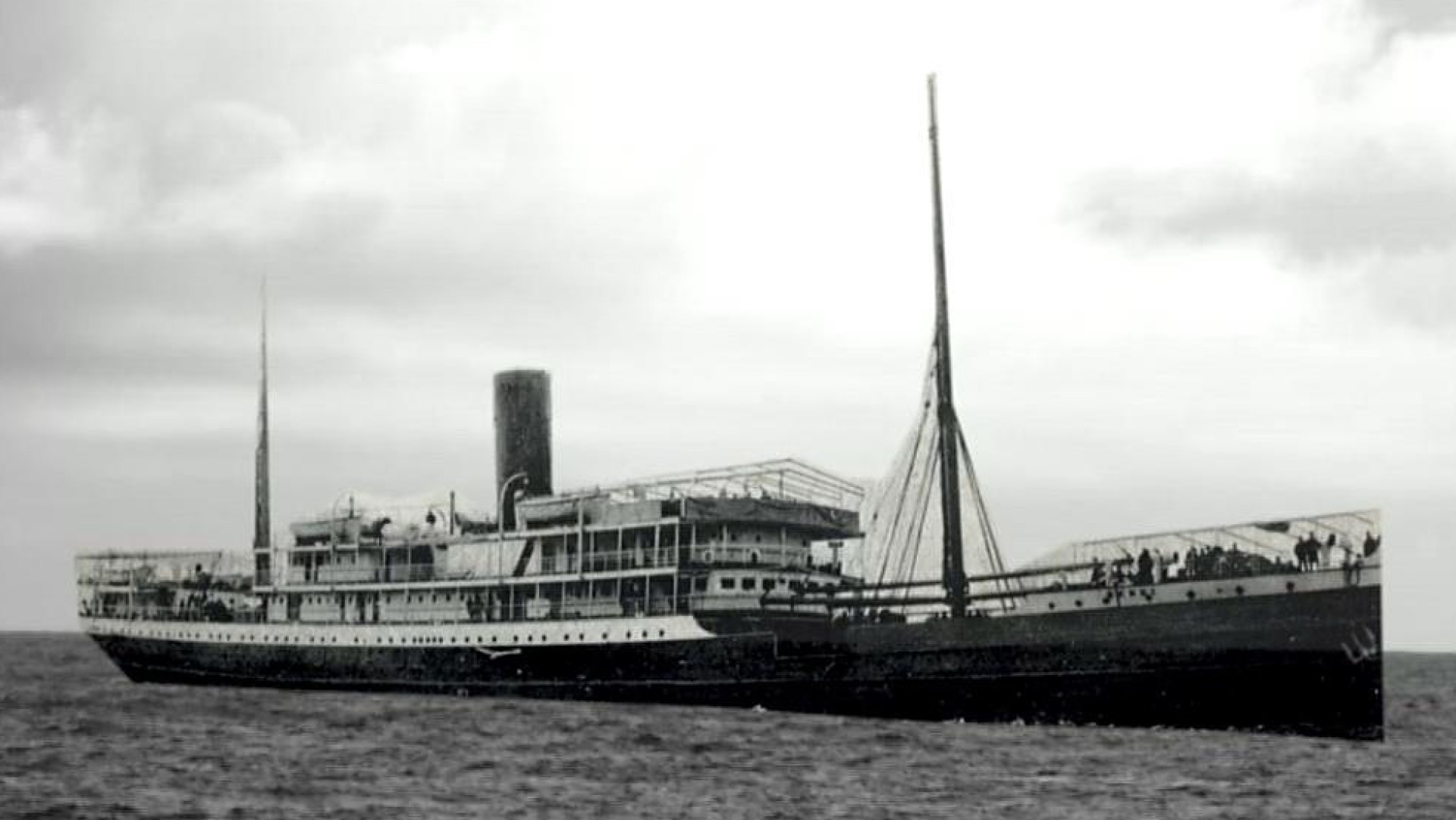
Perhaps the largest loss of life was sustained by SS Mendi, going down in 1917 and claiming the lives of 656 native men from South Africa who were on their way to dig trenches on the front line. Now a war grave, the men had never been to sea before and couldn’t swim. Bodies were washed up all over the south coast and yet no recognition was given to the tragedy at the time.
The wreck of the Mendi was found by local diver Martin Woodward 40 years ago. “It was apartheid at its worse,” said Martin. “I feel quite sad about it. The Queen unveiled a plaque to those who died in 1994 so they got their recognition in the end.”
Relics from all of these ships can be seen at Martin’s Shipwreck Centre and Maritime Museum at Arreton Barns, along with much, much more..
For more Island inspiration, see our Explore section.
Find Ways To Save.
Book your ferry travel to the Isle of Wight today!


